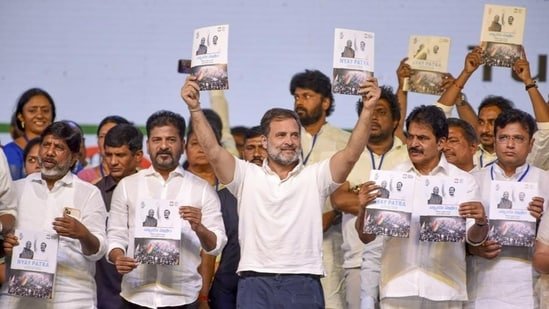
India is perhaps the only country in the Global South that has had no serious economic crisis. The Congress, as the party which has ruled India for the longest period deserves some credit for this. It’s ability to first pursue State-led industrialisation and then unleash economic reforms (albeit, when under the gun), with Jawaharlal Nehru rejecting Gandhiji’s gram swaraj vision in the former, and PV Narasimha Rao and Manmohan Singh manoeuvring out of the Nehruvian socialism dogma in the later years, highlight decisions taken despite differences of opinion within the leadership.

The Congress’s challenges today are very different from what they were when it managed these historic recalibrations. It has suffered humiliating losses in the 2014 and 2019 elections and has seen a massive erosion of the political power it used to wield. The agent of this weakening of the Congress has been the BJP, which under Narendra Modi, has perfected a political cocktail of nationalism, welfare, development and Hindutva. Can the Congress stage a comeback in 2024? What’s the best way to achieve this?
The manifesto of the Congress, which was released last week, suggests that it is making yet another recalibration to revive its political fortunes. This seems to include a very large increase in the allocation of fiscal resources towards welfare. While the relationship between welfare and the Congress is not new in this country, what makes the 2024 manifesto unique in a way is that it seems to have given a complete go-by to concerns of fiscal sustainability while making these promises. In doing so, the Congress, clearly, seems to be decoupling itself from the bipartisan consensus it has helped evolve on things such as fiscal prudence and reforms at large in the post-1991 period.
Will this decoupling help the Congress party or political discourse in the country?
True, they throw light on the fact that the Indian economy is mired in deep-rooted and widespread inequalities. But India’s pre-1991 experience shows that the State was not very successful in managing economic aspirations and growth either.
An even more important question is will such promises have credibility? The person who drafted the Congress manifesto has been one of the most outspoken advocates of the post-reform consensus the Congress is now asking to be discarded. This makes it very likely that the party is promising these things in a half-hearted manner rather than as a reflection of an organic debate on economic reforms.
Neither will help the Congress in improving things for itself.
Continue reading with HT Premium Subscription
Daily E Paper I Premium Articles I Brunch E Magazine I Daily Infographics








